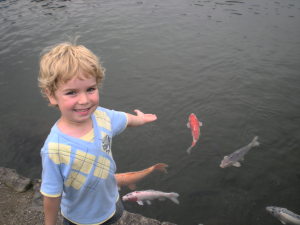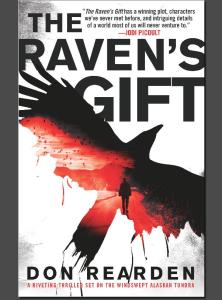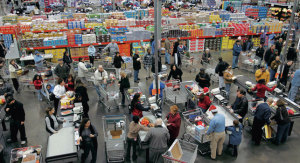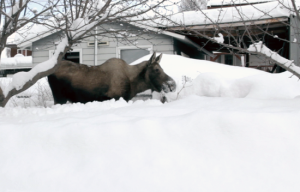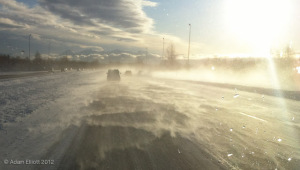Daylight has a different sound than night does. Not the usual distinctions, like birdsong, crickets, traffic. When the sun rises, I hear a difference in the world, a tone—very, very subtle—with more vibrancy in sunlight than the velvety sound of night.
I haven’t found an explanation for this. I wasn’t aware of it in my noisy childhood home, or in my many years of getting up via alarm clock to start my day. But, once I had the leisure of waking up on my own time, and in a quiet place, I was able to hear the difference. It both delights and mystifies me. The universe has its own music, available to us if we quiet ourselves enough to hear it.
In an RV park in Moose Pass, Alaska, a neighbor told me that there was a room in Fairbanks called The Place Where You Go to Listen, with music composed to reflect a constant stream of information from instruments measuring seismic shifts, geomagnetic changes, and the flow of time and weather. I hadn’t planned on including Fairbanks in the trip. But when she followed up, still wide-eyed about it, with “I heard an earthquake while I was there,” I instantly decided to go.
The Place Where You Go to Listen is named for Naalagiagvik, on the Arctic coast, home to a legend about an Inupiak woman who went there to listen to the earth speaking, through birds, wha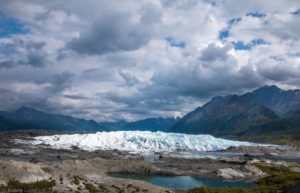 les, water, wind. It’s a small room, with a single bench in the center, in the Museum of the North. On one wall are five glass panels in a row, glowing with light, whose depth and color depend on the time of day. Because I went in the well-lit evening of an Alaskan August, the panels were still bright yellow and blue. Music, created by John Luther Adams, surrounded me with a range of ever-changing, vibrant, light tones, the Daylight Choir. It was infinitely more vivid than the tiny changes I naturally hear, and startlingly lovely to listen to.
les, water, wind. It’s a small room, with a single bench in the center, in the Museum of the North. On one wall are five glass panels in a row, glowing with light, whose depth and color depend on the time of day. Because I went in the well-lit evening of an Alaskan August, the panels were still bright yellow and blue. Music, created by John Luther Adams, surrounded me with a range of ever-changing, vibrant, light tones, the Daylight Choir. It was infinitely more vivid than the tiny changes I naturally hear, and startlingly lovely to listen to.
Underneath the daylight music were resonant bass tones, and these changed, minute by minute, with seismic activity in the earth. There were no earthquakes while I was there, but the bass swelled and ebbed as the world below me went about the business of being the earth. At a couple of points the sound was strong enough to make the details in the walls—speakers, vents, frames—vibrate into noise themselves. The aurora borealis, invisible in the daylight, was just strong enough to send occasional, delicate bell tones across the ceiling.
Alone in the room, I lay down on the bench and gave myself completely to the singing of the earth. It lulled me into a trance, though the swelling bass would lure me out of it, then settle me back as the sound calmed. It was one of the most profound meditations I’ve ever experienced.
What made it so movi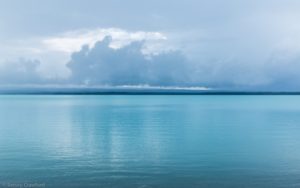 ng, in addition to the beauty of the glittering, swirling tones, was the feeling that the music was being played by the living earth itself. I could listen as the subtlest of moves under my back changed the resonance around me. I am used to hearing the many wonderful sounds on the earth’s surface—thunder, rain, crickets, birdsong, rushing water, wild wind, the icy whisper of snow—but this was the planet itself swelling human notes in real time. This was the grace of the best of art, taking apart the texture of life and piecing it back together in a way that changes perceptions forever.
ng, in addition to the beauty of the glittering, swirling tones, was the feeling that the music was being played by the living earth itself. I could listen as the subtlest of moves under my back changed the resonance around me. I am used to hearing the many wonderful sounds on the earth’s surface—thunder, rain, crickets, birdsong, rushing water, wild wind, the icy whisper of snow—but this was the planet itself swelling human notes in real time. This was the grace of the best of art, taking apart the texture of life and piecing it back together in a way that changes perceptions forever.
I stayed a long time, often alone, sometimes not. At the end I was joined by a young couple. The woman, quiet and graceful, came out right after me, and we talked about our experience. She had just graduated from art school, and had come all the way from Oregon to be in that spot. “I’d heard that there was a place in Fairbanks where you could hear the world breathe,” she said.
Lying in that room, held by the subtly shifting music of daylight and the sonorous sounds of the ground deep under me—recording its stretching, contracting, breathing, living—I knew that we and the earth around and under us are one. We grew out of its waters, rocks and mud. This is the great gift, and challenge, of hearing the earth breathe: to know it’s alive, a being in its own right, that its seas and mountains, forests and plains, its atmosphere and the great plates floating over its surface, its unfathomable depths, are all manifestations of the same creative energy that continually brings us all into being. This isn’t a planet we are on, it’s the planet that we are.
Betsey Crawford spent her first 60 years in New York, and then took off in an RV to have adventures. A landscape designer and environmental activist, she now roams the west, from the Mexican border to Alaska, hiking and taking photographs, especially of wildflowers. She posts photos and celebrates beauty, wildness and spirit on her website, The Soul of the Earth (www.thesouloftheearth.com.)
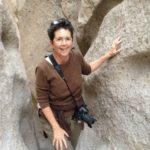



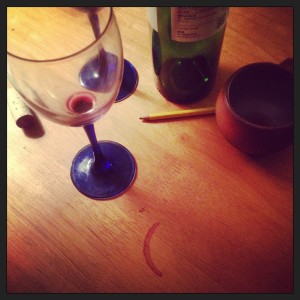

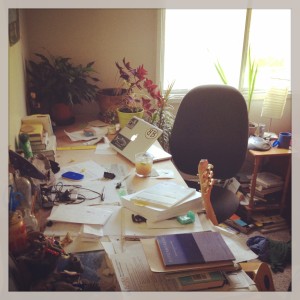


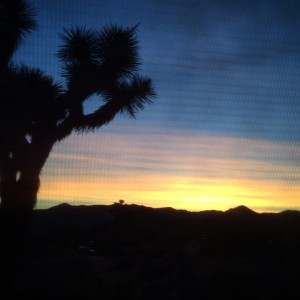

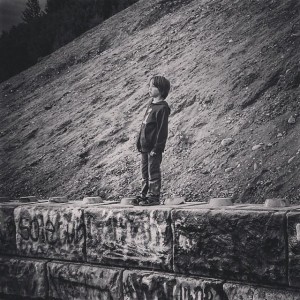
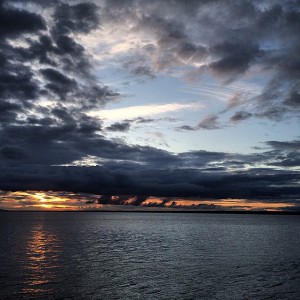
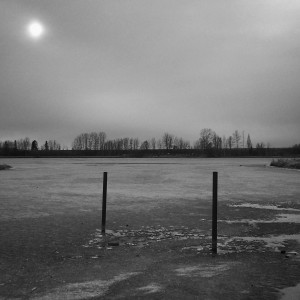
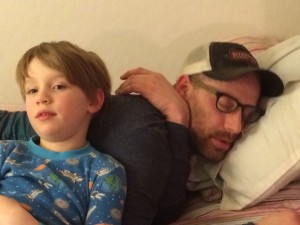

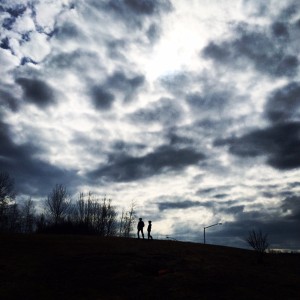
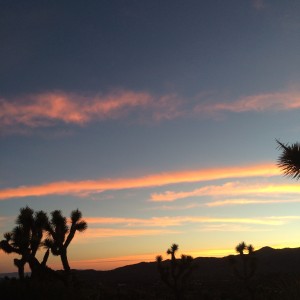
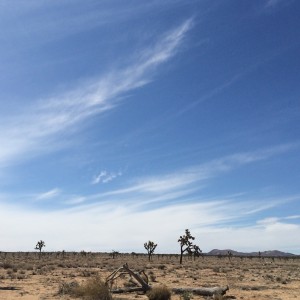
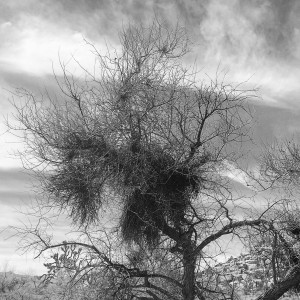
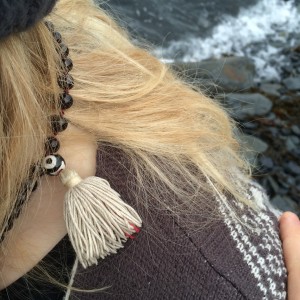

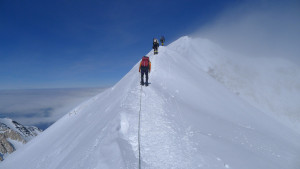
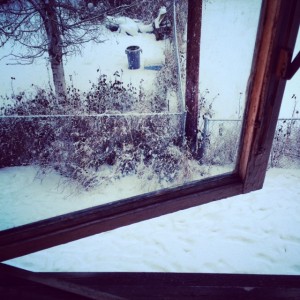
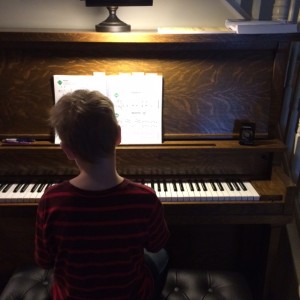
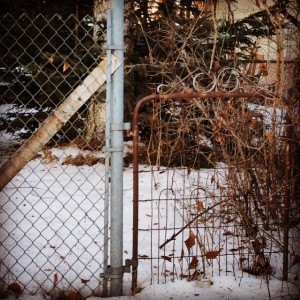
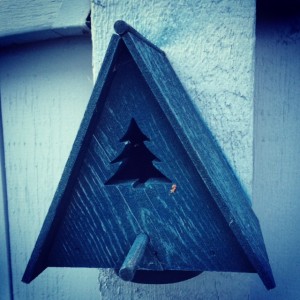 We didn’t buy that house. There are a few reasons why. Money is one, of course, but so was the basement, which yanked me out of my fantasizing and only called to mind The Silence of the Lambs.
We didn’t buy that house. There are a few reasons why. Money is one, of course, but so was the basement, which yanked me out of my fantasizing and only called to mind The Silence of the Lambs.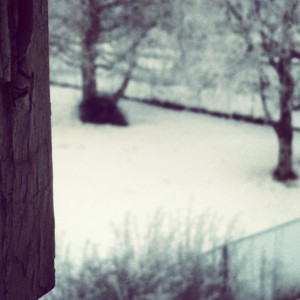

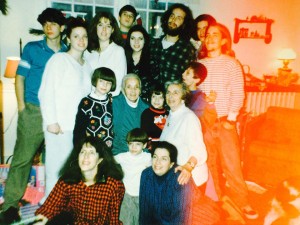

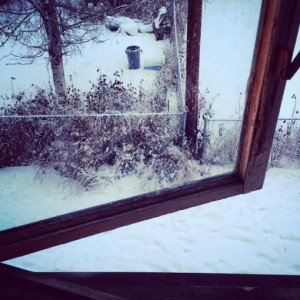

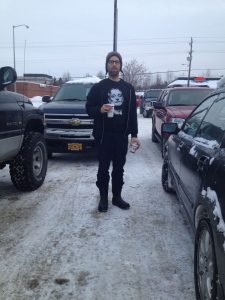
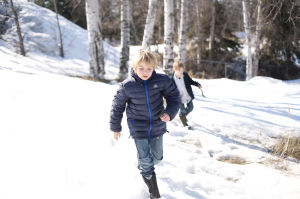
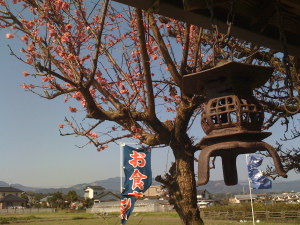
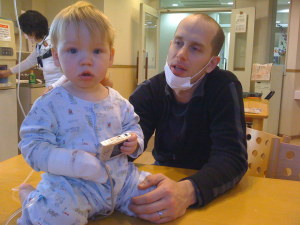
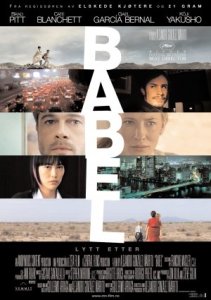
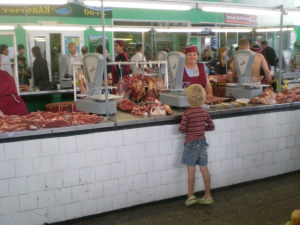 I’ve drifted through a Russian village meat market and stood slack-jawed watching a toothless man butchering a pig – cigarette dangling from his mouth, no shirt or gloves – in a way that would no doubt cause reps from both OSHA and the FDA to collapse from aneurysms. I’ve lived five miles deep in the woods of New Hampshire without running water all winter. Stood thigh-high in steaming piles of horse manure twenty-one miles up a mountain in Oregon, holding only a shovel and longing for nothing more than to finish the job and return to my wood-heated cabin and books a stone’s throw away.
I’ve drifted through a Russian village meat market and stood slack-jawed watching a toothless man butchering a pig – cigarette dangling from his mouth, no shirt or gloves – in a way that would no doubt cause reps from both OSHA and the FDA to collapse from aneurysms. I’ve lived five miles deep in the woods of New Hampshire without running water all winter. Stood thigh-high in steaming piles of horse manure twenty-one miles up a mountain in Oregon, holding only a shovel and longing for nothing more than to finish the job and return to my wood-heated cabin and books a stone’s throw away.